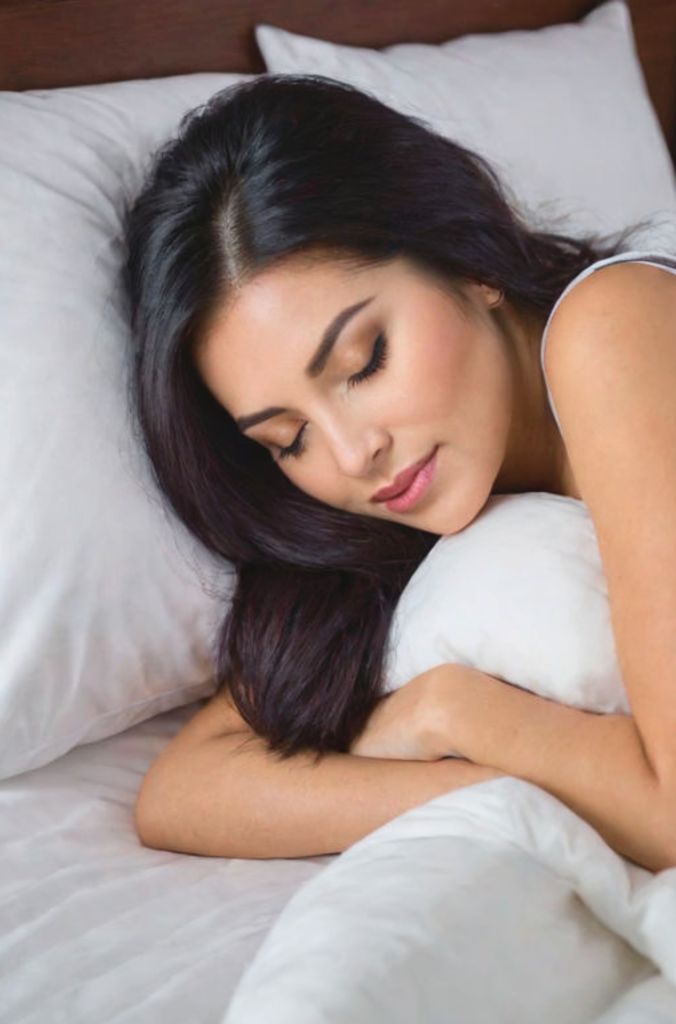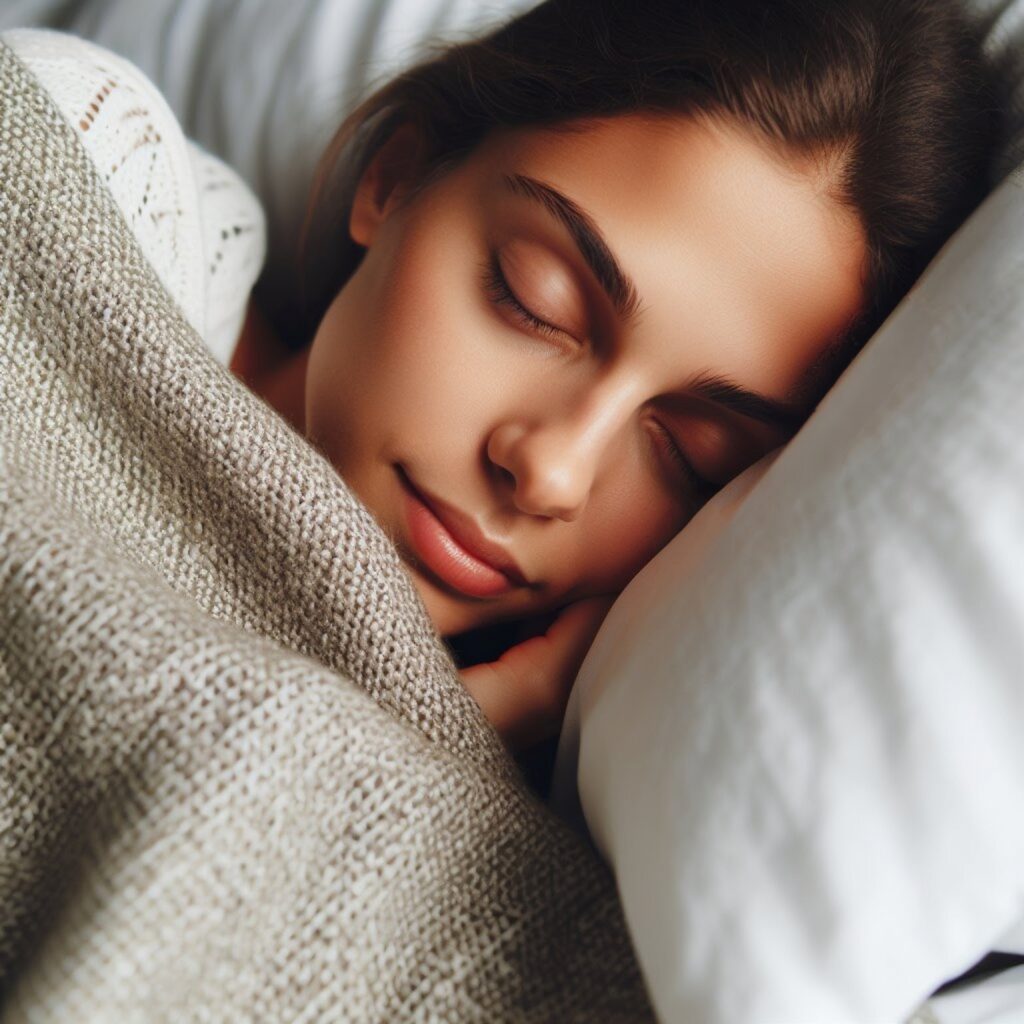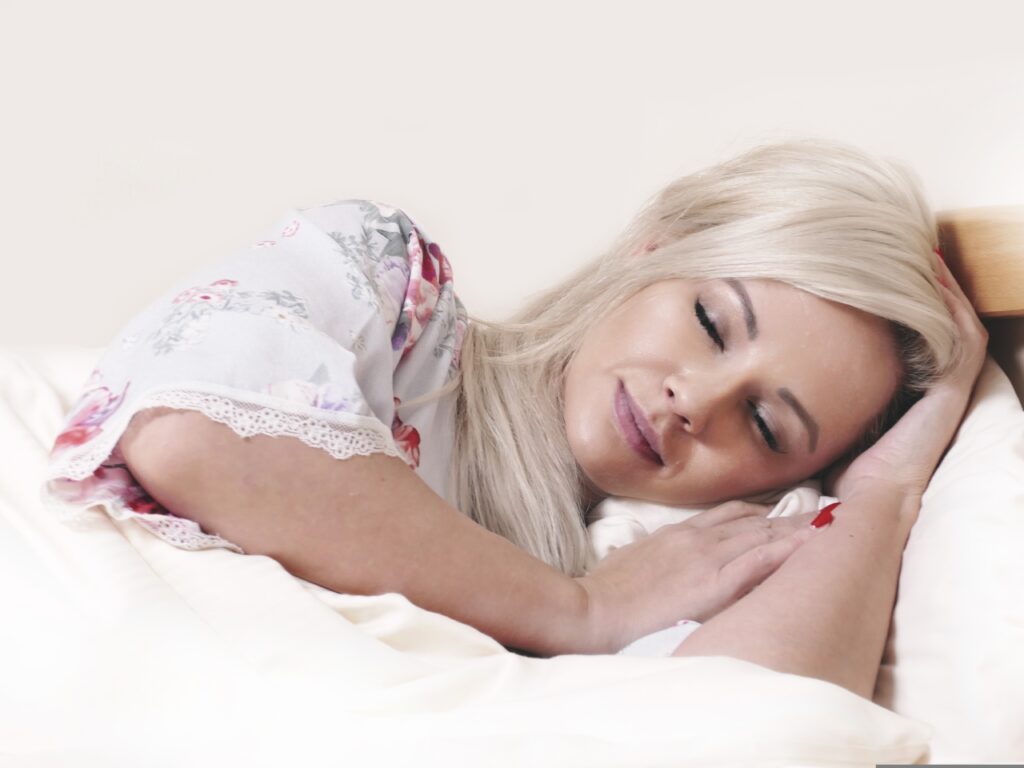So many people are affected by sleep issues, so today we will discuss Tips For Better Sleep hygiene.

Optimizing Your Sleep Environment
01. Keep your bedroom cool (around 65°F or 18°C) – A cooler temperature helps regulate your body’s natural sleep cycle and prevents overheating.
02. Use blackout curtains to block external light – Even small amounts of light can interfere with melatonin production, disrupting your sleep.
03. Reduce noise with earplugs or a white noise machine – Traffic, pets, or other household noises can wake you up. White noise or earplugs can minimize disturbances.
04. Invest in a comfortable mattress and pillows – A good mattress supports spinal alignment and reduces pressure points, while pillows should match your preferred sleeping position.
05. Use breathable, soft bedding – Materials like cotton and bamboo wick away moisture and regulate body temperature.
06. Keep electronics out of the bedroom – Phones, TVs, and tablets emit blue light that tricks your brain into staying awake. Charge your devices outside your room if possible.
07. Use aromatherapy (lavender, chamomile) to create a relaxing atmosphere – Essential oils like lavender have been shown to promote relaxation and reduce stress.
08. Declutter your bedroom to make it a peaceful space. A messy room can increase stress and make it harder to relax at night.
09. Use a sleep mask if needed – If blackout curtains aren’t an option, a comfortable sleep mask can help block out light completely.

Developing a Relaxing Pre-Bedtime Routine
10. Establish a consistent bedtime and wake-up time – Going to sleep and waking up at the same time every day (including weekends) strengthens your body’s internal clock.
11. Develop a relaxing pre-sleep routine – Wind down with activities like light reading, journaling, or gentle stretching to signal to your brain that it’s time for rest.
12. Take a warm bath or shower before bed – The drop in body temperature after a warm bath mimics the body’s natural cooling process before sleep.
13. Avoid blue light from screens 1-2 hours before sleeping – Blue light disrupts melatonin production, making it harder to fall asleep. Try dimming lights or using blue-light-blocking glasses.
14. Try meditation or deep breathing exercises – Techniques like 4-7-8 breathing or guided meditation can lower stress and help you fall asleep faster.
15. Drink a calming tea (chamomile, valerian root) – Herbal teas contain compounds that promote relaxation. Avoid caffeinated teas like green or black tea.
16. Listen to calming music or white noise – Nature sounds, ASMR, or soft instrumental music can help ease anxiety and lull you to sleep.
17. Avoid stressful conversations before bed – Arguments or work-related discussions can increase cortisol levels, making it harder to relax and fall asleep.

Healthy Daytime Habits to Support Sleep
18. Get sunlight exposure in the morning to regulate your circadian rhythm – Natural sunlight, especially in the first hour of waking up, helps signal to your body that it’s time to be awake.
19. Exercise regularly, but not too close to bedtime – Exercise improves sleep quality, but intense workouts too close to bedtime can increase adrenaline and body temperature.
20. Limit naps to 20-30 minutes earlier in the day. Short naps can be refreshing, but long or late-afternoon naps can interfere with nighttime sleep.
21. Stick to a regular meal schedule – Eating at consistent times each day helps regulate digestion and metabolism, which influences your sleep cycle.
22. Avoid caffeine after midday – Caffeine stays in your system for hours, so cutting off intake after noon can prevent nighttime restlessness.
23. Reduce alcohol intake, especially before bedtime – Alcohol may help you fall asleep faster, but it reduces sleep quality by disrupting REM sleep.
24. Stay hydrated, but limit fluids close to bedtime – Dehydration can cause discomfort, but too much water at night can lead to frequent bathroom trips.
25. Avoid heavy meals right before sleep – Large, greasy, or spicy meals can cause indigestion and acid reflux, making it harder to fall asleep comfortably.

Mental & Emotional Well-being for Better Sleep
26. Practice gratitude or positive affirmations before bed – Reflecting on positive thoughts can lower stress and promote a sense of calm.
27. Keep a worry journal to clear your mind – Writing down thoughts before bed can help prevent racing thoughts that keep you awake.
28. Try progressive muscle relaxation to release tension. This technique involves tensing and relaxing each muscle group, reducing physical stress.
29. Avoid checking emails or social media late at night – Work-related stress or social media scrolling can keep your brain overstimulated, making it hard to unwind.
30. Seek professional help if stress or anxiety is affecting your sleep. If you experience chronic insomnia or anxiety, therapy or counseling can help address underlying issues.

Lifestyle Adjustments for Long-Term Sleep Improvement
31. Use your bed only for sleep and intimacy – Avoid working, watching TV, or eating in bed to strengthen the mental association between your bed and sleep.
32. Stick to your sleep schedule, even on weekends. Irregular sleep patterns can cause “social jet lag,” making it harder to wake up refreshed.
33. If you can’t sleep after 20 minutes, get up and do something relaxing. Lying awake in bed can create stress. Instead, try reading or meditating in dim light before trying again.
34. Limit exposure to bright lights in the evening – Dim the lights in your home an hour before bed to help your body naturally wind down.
35. Train yourself to associate your bed with sleep, not wakefulness – If you spend long hours awake in bed, your brain may start associating it with wakefulness instead of rest.
36. Avoid using sleeping pills unless prescribed – Sleep medications can be habit-forming and may not address the root cause of poor sleep.
37. If you wake up often at night, track your sleep patterns to find triggers. A sleep journal or tracking app can help identify issues like stress, diet, or nighttime habits affecting your rest.

Improving sleep hygiene is about creating a consistent, relaxing, and supportive environment for rest. Small changes can make a big difference over time. Do any of these tips stand out to you? Or would you like a personalized sleep plan? ??

Outfit For A Date Night With Husband



2 thoughts on “Tips For Better Sleep Hygiene”